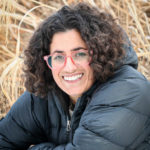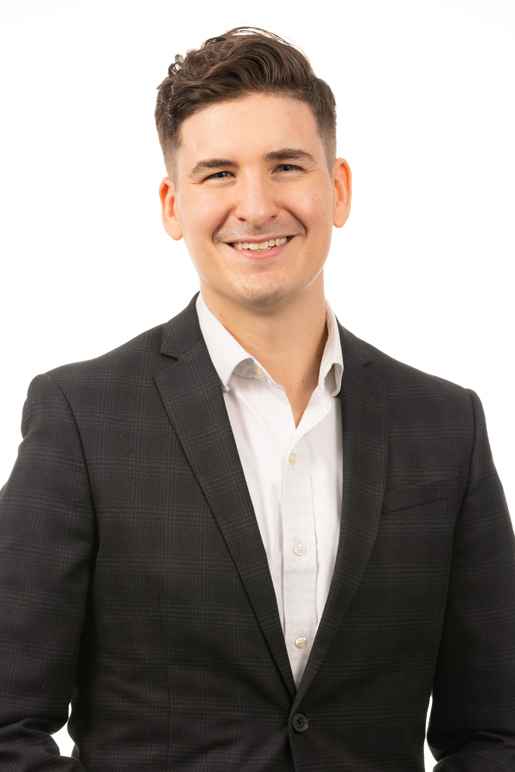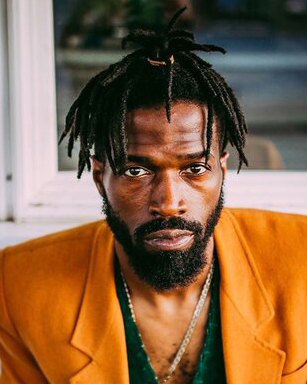Local nonprofit organizations are saying some of our community’s most critical areas of civic growth include increasing voter participation, growing grassroots neighborhood development, and creating more diversity in leadership.
We checked in with three local nonprofits working within the area of Civic Engagement. ACLU of Nebraska, Culxr House, and One Omaha all help to organize and resource local residents affecting change within their own communities.
Their efforts coincide with several of the Foundation’s research findings in The Landscape, a data-driven snapshot of Omaha-Council Bluffs that examines eight areas of community life.
Neighbors are Coming Together to Solve Problems

O’Hanlon
Residents are coming together to organize change within their own neighborhoods, said Alex O’Hanlon, One Omaha’s engagement coordinator. One Omaha takes an approach called Asset-Based Community Development (ABCD) to grassroots neighborhood organizing.
“The more standard community development model is top-down, where money and ideas come first. But ABCD starts with the residents. [One Omaha is] invited in; we don’t instigate things. Our role is to support and build momentum,” O’Hanlon said. “Anybody who shows up to a meeting is an asset.”
The ABCD model starts by looking at the assets in a neighborhood such as its people, property, relationships, schools, or a nearby bus line. One Omaha then helps the neighborhood to build a project from the starting point of those assets.
As an example, the Fairfax Neighborhood Association near 45th Street and Bedford recently had the goal of transforming an empty lot into something for the community. In Fairfax, residents identified a nearby church where planning meetings could be held. They discovered their biggest assets were the connections they had within the community and the drive to make something of the empty lot.
“They were all go-getters!” O’Hanlon said. Using these assets, they decided to build a park where neighbors can socialize, hold meetings, and gather throughout the year. The park capitalizes on the community’s already-present assets of connectedness, ambition, and an available lot in a centralized location.
Neighborhood Relationships Have Strengthened During COVID-19
O’Hanlon believes that effective community development won’t happen without relationships.
“Relationship building is a long-term plan,” she said. “The best time to get to know your neighbor is 20 years ago. And the next best time is now.”
During the pandemic, having connections with neighbors has become more important—even necessary—for many local residents.
“Being able to talk to people in your neighborhood became really important,” O’Hanlon said. “If you already had a relationship, you could reach out. The hardest part was if you didn’t know people on your block. It felt really nerve-wracking on March 14 to put a note on your neighbor’s door if you didn’t already know them.
“People started asking, ‘What do we do, how do we respond?’ We saw that some people in our neighborhoods were at higher risk of contracting coronavirus; some were lonely; some did not have access to food. What if some people were willing to do the more high-risk stuff for folks who couldn’t?”
“The best time to get to know your neighbor is 20 years ago. And the next best time is now.”
In fact, a group of neighbors in Midtown wanted to join together for just this purpose. One Omaha helped the group to start Midtown Mutual Aid to facilitate neighbors to connect and bring their different resources, skills, and availability together to meet the needs of the whole.
Voters Showed Up In Record Numbers This Year
Culxr House and ACLU Nebraska have partnered up to host workshops on voting rights, redistricting, and also hosted Black Votes Matter events.
“The voting workshops are helping people to know their basic voting rights, how to fill out your ballots, really basic things,” said Marcey Yates, founder and executive director of Culxr House.

Petto
Sam Petto, communications director at ACLU Nebraska, said that voter turnout reached a historic high in 2020, even despite the barriers created by the pandemic. He credits this to Nebraska deciding to send mail-in ballot applications to every voter as well as voter training and mobilization done by local organizers.
Additionally, a significant number of citizens showed up to engage in the redistricting efforts that only happen every ten years. Unfortunately, the state decided not to continue to send mail-in ballot applications so ACLU Nebraska has made a significant investment to do the job themselves.
“Give us that list,” Petto said. “Sometimes we approach our work like building blocks … brick after brick making significant change.”
Advocates are Learning Their Rights
Similar to the voting workshops, advocate workshops have also been held at Culxr House, teaching advocates how to safely and effectively gather a crowd around a cause. Yates said that during the 2020 protests in response to the killing of George Floyd, some of the protests got physical, especially after a citywide curfew was instated.
Advocates needed to know simple things like if they could stand on the sidewalk or in the street and what their rights were when an arrest was made. Because they didn’t know the laws, advocates were more likely to be taken advantage of or mistreated by law enforcement.
”It wasn’t fair,” Yates said. “So we said, ‘Let’s make sure protestors know what they can do, what they can say, where they can be, and what they can do as a group together. You have to stay together as a group because it could get dangerous. So just teaching those kinds of tactics. How to dress, what to do if you get physically assaulted. All those kinds of things.”
“I’ve seen a lot more organizations are focusing on social justice, equity, inclusion and I see that having a lasting impact.”

Yates
Because the advocates chose to learn their rights, Yates believes the police have been more careful in their interactions.
“They are definitely not treating protestors the same way now; it was a different summer this year because we were holding law enforcement accountable,” Yates said. “Organizations were created that are 24/7 pushing issues and rights and awareness. More people showed up to city council meetings. Changes have been made. Pressures were put. I’ve seen a lot more organizations are focusing on social justice, equity, inclusion and I see that having a lasting impact. These are seeds that are being planted.“
More Diverse Representation is Needed
Research shows—and nonprofits agree—that more diverse leadership is needed in Omaha-Council Bluffs.
“When talking about representation, we use terms like ‘getting out of the way.’ If gatekeepers in the community got out of the way it could allow for new leadership,” Yates said. “With fresh leadership will come new and creative ways of solving problems in the community.”
Like Petto, Yates speaks to the step-by-step process of implementing small changes over time.
“You can’t really change things overnight, but you can do your part and make an impact. That’s what we do,” Yates said.
A framework Petto said that ACLU Nebraska likes to use is “from protest to the polls to policy.” First, a compelling civic issue may lead thousands of Nebraskans to call for action. How do we move that protest to the polls? And after it’s been voted on, there has to be continued engagement with legislators to make sure policies reflect citizens’ values and respect their civil rights and liberties.
Matters of civic engagement are interconnected, according to Petto.
“From my perspective, there is still a lot of work to do,” he said. “We can say in our parents’ lifetimes we’ve come a significant way. But there are barriers and burdens we haven’t met. About 10% of Omahans are Black but 50% of Omaha’s pretrial jail population is black. Those are the disparities that we are trying to remedy. We can’t just kick the can down the road and blame socio-economic factors.”
Dig into the Research